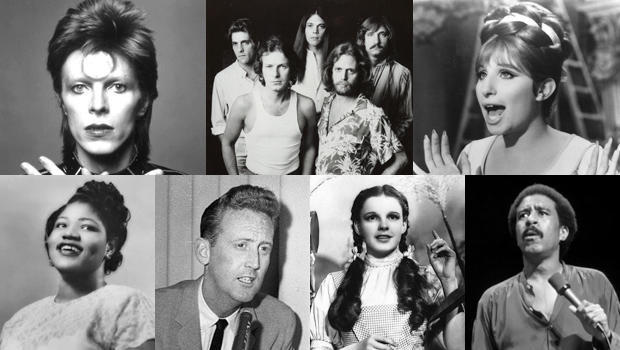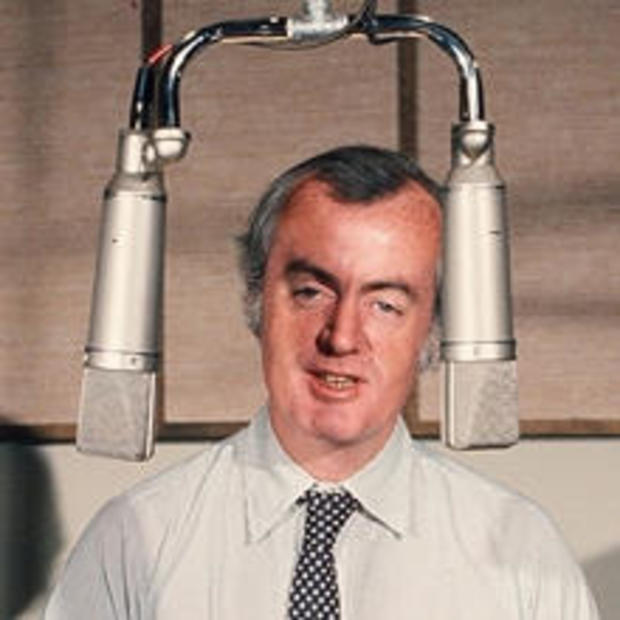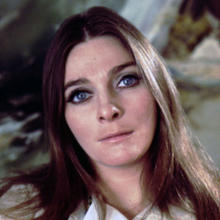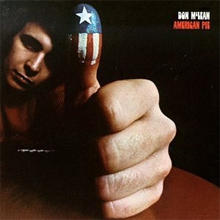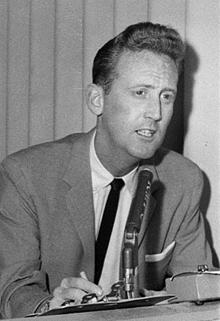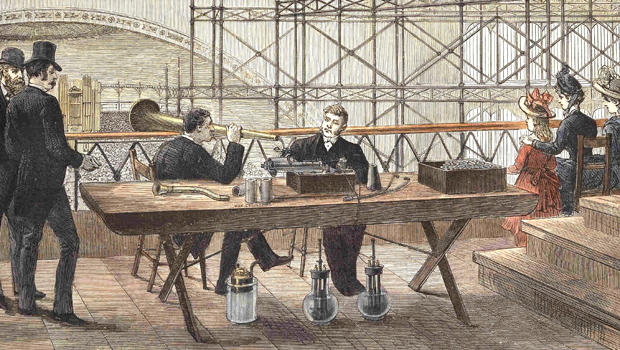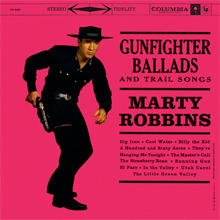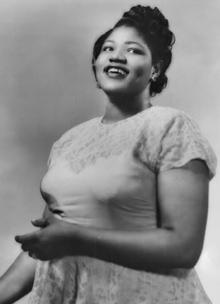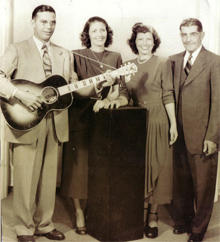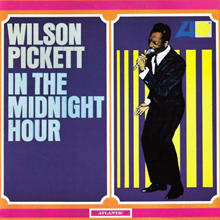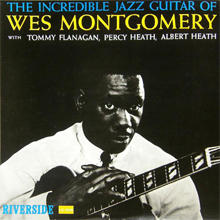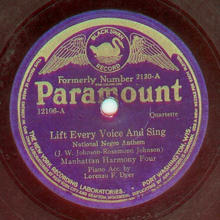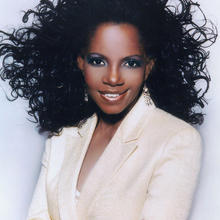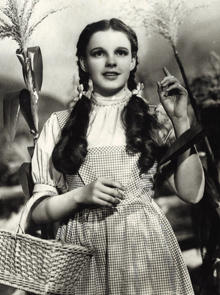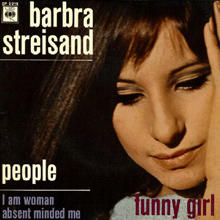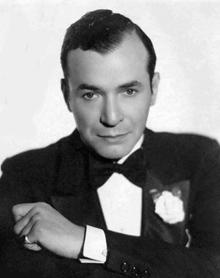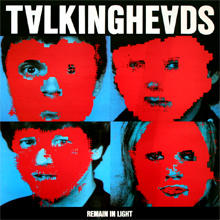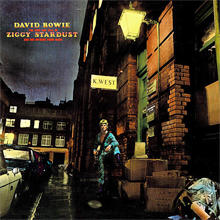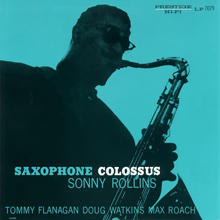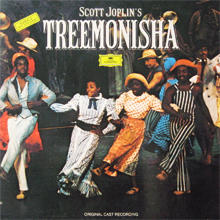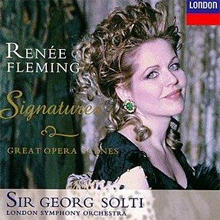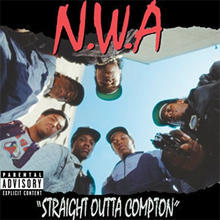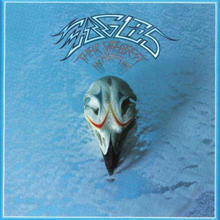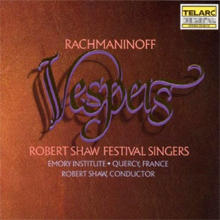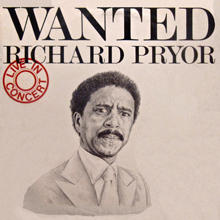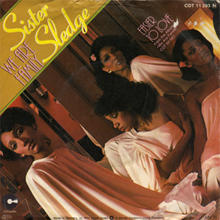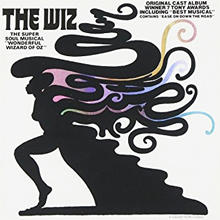Audio Gallery: David Bowie, Barbra Streisand among additions to National Recording Registry
Davie Bowie, Barbra Streisand, Judy Garland, The Eagles, Richard Pryor, Talking Heads and N.W.A. are just a few of the artists whose work has now been marked for preservation by the Library of Congress.
On March 29, 2017, the Library named 25 audio recordings to be inducted to its National Recording Registry, a compendium of sound recordings that will be preserved as representative of America's cultural, artistic and historic treasures. Ranging from rock, pop, jazz, classical, gospel and musical theatre to radio broadcasts and comedy albums, the recordings have been recognized as vital to our nation's audio legacy.
Click through this gallery to listen to audio samples from each of this year's inductees, presented in alphabetical order.
Librarian of Congress Carla Hayden said, "This year's exciting list gives us a full range of sound experiences. These sounds of the past enrich our understanding of the nation's cultural history and our history in general."
With this year's additions, the Registry now numbers 475 historic recordings - just a small part of the Library's collection of recorded sound numbering nearly three million items.
Debut of "All Things Considered"
The flagship news program of National Public Radio, "All Things Considered" was launched on May 3, 1971, one month after the network took to the airwaves. Its inaugural program is being added to the National Recording Registry.
While the series was intended to provide a conversational tone to the day's news, the premiere broadcast was anything but relaxed: raw recordings of voices attending a large, heated anti-Vietnam War protest taking place in Washington, D.C.
Initially beamed to 90 stations across the U.S., its audience would grow to become, according to NPR, "the most listened-to afternoon drive-time news radio program in the country."
"Amazing Grace"
The hymn written in 1779 by John Newton, an Anglican clergyman and former slave ship captain, is officially known as "Faith's Review and Expectation." But over the past two and a half centuries "Amazing Grace" has become a touchstone of both sacred and secular music as a song of uplift, redemption and salvation.
Often recorded, "Amazing Grace" received a stirring a capella rendition by folk singer Judy Collins on her 1970 album, "Whales & Nightingales," with a choir recorded at Columbia University's St. Paul's Chapel.
Released as a single, it was both an artistic triumph and one of Collins' greatest commercial successes - reaching #15 on the Billboard chart in the U.S., and spending more than a year on the U.K. charts.
"American Pie"
I met a girl who sang the blues
And I asked her for some happy news
But she just smiled and turned away
I went down to the sacred store
Where I'd heard the music years before
But the man there said the music wouldn't play
The death of Buddy Holly, Ritchie Valens and The Big Bopper in a 1959 plane crash was the inspiration for Don McLean's 1971 eight-and-one-half-minute epic "American Pie," a cascade of poetic imagery from a decade darkened by a nation's loss of innocence - through social upheaval, war, protests and passion, all underscored by the dominance of rock 'n' roll, which McLean suggested had replaced religion as the faith of a generation. A kaleidoscopic farewell to the Sixties, the song spent four weeks at No. 1.
When in 2015 a 16-page draft of the original lyrics was auctioned (for $1.2 million), McLean was still hesitant to reveal some of the inspirations for his song, such as allusions to Elvis Presley and Bob Dylan ("While the King was looking down, the Jester stole his thorny crown"). But the singer-songwriter, then nearing 70, had advice to a younger generation: "I would say to young songwriters who are starting out to immerse yourself in beautiful music and beautiful lyrics and think about every word you say in a song."
Vin Scully calls final Brooklyn Dodgers-New York Giants game
New Yorkers had much to mourn in 1957 when its two National League teams, the Brooklyn Dodgers and the New York Giants, announced they were pulling up stakes and heading to California.
In their final matchup at the old Polo Grounds, on September 8, 1957, Dodgers announcer Vin Scully sounded a reflective note, interspersing his play-by-play commentary with memories of the teams' greatest moments in New York.
In an empathetic manner recognizable to Dodger fans who have listened to Scully over the past half-century, he offered this advice to the ball players: "Now don't run off the field so fast, fellas. Let's take it easy. We just want to take one good long lingering look at both of you."
Excerpt: Vin Scully calls the final Giants-Dodgers game at the Polo Grounds
Col. George Gouraud's 1888 cylinder recordings
When Thomas Edison developed a new wax-cylinder phonograph recorder in 1888, he gave the first one produced to Col. George Gouraud, an American Civil War veteran living in London and working as a sales agent for Edison's company.
Gouraud hosted demonstrations of the marvelous new device for the upper echelons of society, including Arthur Sullivan (of the composing team Gilbert & Sullivan), whose own voice he recorded on the cylinder, with a rather piquant warning for the future.
Excerpt: 1888 recording of composer Sir Arthur Sullivan
Gouaud also recorded the Handel Festival at London's Crystal Palace, capturing the 4,000-voice chorus from the press balcony 100 yards away.
"Gunfighter Ballads and Trail Songs"
After logging several hits under his belt, country-western singer Marty Robbins pitched an album of "Western," not "country" songs.
"Gunfighter Ballads and Trail Songs" (1959) featured three of Robbins' own compositions, including "El Paso," which became his most famous song.
The album was a major hit - certified gold and hitting #1 on both the pop and country charts - and won a Grammy for Best Country & Western Recording.
"Hound Dog"
You ain't nothin' but a hound dog
Quit snoopin' 'round my door
You can wag your tail
But I ain't gonna feed you no more
Though Elvis Presley made "Hound Dog" a rock 'n' roll touchstone, it was originally an R&B song written for the powerhouse blues singer Willie Mae "Big Mama" Thornton.
Composed by Jerry Leiber and Mike Stoller and produced by bandleader Johnny Otis, "Hound Dog" (1953) was written in a matter of minutes (scribbled onto a paper bag, as one recalled) and recorded the next day.
With complicated and infectious rhythms and Thornton's belting, sassy delivery of some risqué lyrics, it became her biggest hit, selling two million copies, and inspired a slew of cover versions, including Presley's.
"I'll Fly Away"
Beginning in the mid-1930s, the four-part harmonies of The Chuck Wagon Gang - D.P. "Dad" Carter, his son and two daughters, who were later replaced with other performers - made the country-gospel group the holders of one of the longest-lasting record contracts, recording with Columbia for nearly 40 years.
The quartet's version of the hymn "I'll Fly Away," recorded in 1948, was among the bestselling gospel songs of all time, even though it initially appeared as the B-side of their rendition of "Dream Boat."
"In the Midnight Hour"
A #1 R&B hit, "In the Midnight Hour" (1965) was the first major solo success for Wilson Pickett, who had previously performed with the gospel group the Violinaires and the R&B group the Falcons, before striking out on his own.
Pickett was brought in to Stax Studios to work with guitarist Steve Cropper, who played with Booker T. and the MGs, and together they crafted a forceful soul song with a hard-to-resist dance beat.
"The Incredible Jazz Guitar of Wes Montgomery"
Jazz guitarist Wes Montgomery recorded sporadically with Lionel Hampton's orchestra, Freddie Hubbard, and his brothers, before being signed to Riverside Records in 1959. Being self-taught (his distinctive string-plucking and use of paired notes an octave part gave his playing a distinctive sound), Montgomery nonetheless displayed full mastery of the electric guitar as he straddled different modes of jazz - smooth, bop, pop and soul.
On this, his second album, released in 1960, Montgomery was joined by pianist Tommy Flanagan, bass player Percy Heath and drummer Albert Heath. The tracks include four Montgomery compositions ("D-Natural Blues," "Four on Six," "West Coast Blues" and "Mr. Walker") as well as music by Dave Brubeck ("Mr. Walker (Reinie)") and Sonny Rollins ("Airegin").
"Lift Every Voice and Sing"
We have come over a way that with tears has been watered,
We have come, treading our path through the blood of the slaughtered,
Out from the gloomy past,
Till now we stand at last
Where the white gleam of our bright star is cast
The 1905 hymn "Lift Every Voice and Sing" (music by John Rosamond Johnson, text by James Welcon Johnson) was adopted by the NAACP as the "Black American National Anthem."
Two recordings of the song have been entered into the National Registry this year: one, recorded in 1923 by the Manhattan Harmony Four, was released by an African-American-owned record label based in Harlem.
Excerpt from "Lift Every Voice and Sing" by Manhattan Harmony Four
The second version, recorded in 1990, is a modern rendition released to benefit charity. Headlined by Melba Moore, the cast of singers included R&B and gospel stars, including Anita Baker, Bobby Brown, The Clark Sisters, Freddie Jackson, Stephanie Mills, Take 6, Dionne Warwick, BeBe & CeCe Winans, and Stevie Wonder.
Excerpt from "Lift Every Voice and Sing" by Melba Moore (1990)
"Over the Rainbow"
Somewhere over the rainbow bluebirds fly
Birds fly over the rainbow
Why then, oh, why can't I?
It was one of the most treasured songs of Hollywood musical history, and it was almost cut out.
Harold Arlen and Yip Harburg's "Over the Rainbow," written for the 1939 movie "The Wizard of Oz," was a wistful evocation of Dorothy (played by Judy Garland), a young girl who yearns for a life far from the drudgery of her Kansas farm. Little would she know that a twister would whisk her off to the fantastical Technicolor land of Oz, where she'd spend her time pining to return to her sepia-colored home.
After a preview screening, studio big shots wanted to cut the song from the picture, claiming it slowed down the action. But wiser heads prevailed, and the song - an Oscar-winner - would go on to be ranked by the American Film Institute as the "greatest movie song of all time." Strangely, the film's musical soundtrack wasn't released commercially for years, but a studio recording by Garland of "Over the Rainbow" would help make it her signature song.
"People"
Barbra Streisand became a Broadway sensation with her appearance in the 1962 musical "I Can Get It for You Wholesale." But she owned the Great White Way with her star turn in the 1964 Jule Styne-Bob Merrill musical "Funny Girl," about the entertainer Fanny Brice.
Her tour de force performance (which she recreated for the 1968 movie version) included such show-stoppers as "I'm the Greatest Star," "His Love Makes Me Beautiful," and "Don't Rain on My Parade." But "People" would become Streisand's signature song - her first Top 40 hit, and an exquisite vehicle for Streisand's instrument.
"Puttin' On the Ritz"
If you're blue and you don't know where to go to,
Why don't you go where Harlem sits,
Puttin' on the Ritz!
Spangled gowns upon the bevy
of highbrows from down the levee, all misfits,
Puttin' on the Ritz!
Written by Irving Berlin and introduced in the 1930 film musical of the same name, "Puttin' on the Ritz" was performed on screen by star Harry Richman. Given the film's technical deficiencies, the song's sparkling lyrics and syncopated rhythms were better served by Richman's studio recording, with Earl Burtnett and his Los Angeles Hotel Biltmore Orchestra, released by Brunswick Records.
Berlin's song would later be performed on screen by Fred Astaire, in "Blue Skies," and by Gene Wilder and Peter Boyle in Mel Brooks' "Young Frankenstein." It was also given a modish synthpop update by Taco in 1982.
"Remain in Light"
Letting the days go by (let the water hold me down)
Letting the days go by (water flowing underground)
Into the blue again (after the money's gone)
Once in a lifetime (water flowing underground)
The group Talking Heads (David Byrne, Chris Frantz, Jerry Harrison and Tina Weymouth) were musical alchemists - extracting the rhythms of African and Arabic styles, funk and electronica and blending them with postmodern lyrics that created toe-tapping music of dizzying depth, with tongues planted firmly in cheek.
Inspired by Nigerian musician Fela Kuti, the Talking Heads' fourth studio album, the experimental "Remain in Light" (1980), was produced by Brian Eno, and incorporated loops and samples in a stream-of-consciousness flow of wordplay and social commentary.
One of the most acclaimed albums of the 1980s, "Remain in Light" includes the tracks "Houses in Motion," "Born Under Punches (The Heat Goes On)," "Crosseyed and Painless," and one of the group's most famous songs, "Once in a Lifetime."
"The Rise and Fall of Ziggy Stardust and the Spiders From Mars"
There's a starman waiting in the sky
He'd like to come and meet us
But he thinks he'd blow our minds
There's a starman waiting in the sky
He's told us not to blow it
'Cause he knows it's all worthwhile
He told me: Let the children lose it
Let the children use it
Let all the children boogie
"The Rise and Fall of Ziggy Stardust and the Spiders from Mars" (1972) is a concept album starring David Bowie's glam-rock alter ego, an alien bisexual visiting an Earth on the edge of apocalypse.
Songs include "Starman," "Five Years," "Soul Love," "Moonage Daydream," "Lady Stardust," "Star," "Hang On to Yourself," "Suffragette City and "Rock 'n' Roll Suicide," as well as Ron Davies' "It Ain't Easy."
And if there was any doubt that Bowie's music was an exaltation, the back cover left no doubt, bearing the admonition: "TO BE PLAYED AT MAXIMUM VOLUME." Good advice!
"Saxophone Colossus"
Accompanied by drummer Max Roach, bassist Doug Watkins and pianist Tommy Flanagan, Sonny Rollins and his tenor sax soared to new heights in his 1956 album, "Saxophone Colossus." Musically adventurous with dynamic playing, the album was a milestone for Rollins' career, and for the bop style of jazz records.
One of the album's best-known compositions, "St. Thomas" (which was inspired by a melody sung to him by his mother), features a playful calypso beat before swimming into the choppier waters of jazz.
Other compositions include "You Don't Know What Love Is," "Strode Rode," "Moritat" ("Mack the Knife," from "The Threepenny Opera"), and "Blue 7" - a single track more than 11 minutes long. And Rollins' sax truly sings.
Scott Joplin's "Treemonisha"
Scott Joplin (1868-1917) was renowned as a composer of ragtime, and enjoyed a wave of posthumous fame when his colorful and even haunting music was incorporated into the soundtrack of the Oscar-winning 1973 film, "The Sting."
His 1911 opera, "Treemonisha," was never fully performed during the composer's lifetime; it received a read-through with Joplin providing the accompaniment on piano, and then languished. After scholars reconstructed the work (about an educated black woman who tries to steer her community away from superstitions) which melds spirituals, folk songs and early blues music, it received its first stage production at Morehouse College in 1972, with orchestrations by T.J. Anderson and stage direction by Katherine Dunham.
In 1975 the Houston Grand Opera presented a new version orchestrated and conducted by Gunther Schuller, a production recorded by Deutsche Grammophon.
Excerpt from "Aunt Dinah Blowed da Horn," from "Treemonisha"
"Signatures"
One of the purest of soprano voices (and one of the few to grace both the stage of New York's Metropolitan Opera and public television's "Sesame Street"), Renée Fleming has demonstrated both astonishing musical felicity and impressive dramatic strength in her operatic roles.
Her range is amply showcased in "Signatures," a 1997 compilation of arias from works by Mozart, Dvorák, Tchaikovsky, Verdi, Britten and Richard Strauss.
Conducted by Sir Georg Solti, the album features Fleming as the Countess in "The Marriage of Figaro," Tatyana in "Eugene Onegin," Desdemona in "Otello," and Daphne, from Strauss' "Daphne," a "bucolic tragedy in one act."
"Straight Outta Compton"
The 1988 album by the Southern California group N.W.A. (Arabian Prince, DJ Yella, Dr. Dre, Eazy-E, Ice Cube and MC Ren) was an explosive infusion of gangsta rap into the mainstream. The unrelenting darkness of the lyrics, which critics argued glamorized violence, told of the desperation of young black men's lives colored by girls, gangs, guns and drugs (as well as the censors of radio who would keep profanity-filled rap music off the airwaves.)
N.W.A. was excoriated by some for their track "F*** tha Police" ("When I'm finished, it's gonna be a bloodbath of cops, dying in L.A."), but critics widely praised "Straight Outta Compton" as one of the most revelatory hip hop albums ever.
"Their Greatest Hits 1971-1975"
The Eagles, formed in 1971 by Glenn Frey, Don Henley, Bernie Leadon and Randy Meisner, would be the bestselling American band of the decade, with such early hits as "Take It Easy," "One of These Nights," "Lyin' Eyes," and "Best of My Love." When their record label deemed a compilation album would be a no-brainer, the band resisted, calling it a marketing ploy.
But while Henley, for one, objected to tracks being lifted from the context of their original album lineups, the musical consistency of the Eagles' songs made "Their Greatest Hits (1971-1975)" a strong listening experience - and, not incidentally, the bestselling record of all time in the U.S., with 26 million copies sold. Take it easy, indeed.
Rachmaninoff's "Vespers"
In 1988 conductor Robert Shaw launched an annual summer choral music festival in southwest France, performing masterworks in the incomparable acoustics of the region's Romanesque churches dating back to the 12th and 13th centuries.
During the 1989 festival, Shaw conducted Sergei Rachmaninoff's Russian Orthodox "All-night Vigil" (commonly known as "Vespers"), during an evening service in the Church of St. Pierre in Gramat, France.
Excerpt from "Now Let They Servant Depart" from Rachmaninoff's "Vespers"
"Wanted: Live in Concert"
The one and only Richard Pryor brought standup comedy to new heights of personal revelation and characterization. Though he acted in dozens of films (not all of which took advantage of his gifts to the fullest), Pryor's greatest talent was as a solo artist bringing autobiography and social commentary to his hilarious routines.
His 1978 tour, preserved both in a concert film and in this two-record album, features his take on African American celebrities such as Muhammad Ali, Jim Brown and Leon Spinks; his father's behavior at Pryor's stepmother's funeral; going to the bathroom in the woods; and his own heart having an attack.
"We Are Family"
We are family
I got all my sisters with me
We are family
Get up everybody and sing
"We Are Family" was a dance anthem for womanhood and solidarity recorded by the Philadelphia R&B group Sister Sledge: sisters Debbie, Joni, Kathie and Kim.
The quartet had been frustrated after eight years in the music business, but then they crossed paths with Bernard Edwards and Nile Rodgers, of the group Chic, who wrote and produced their disco jam "He's the Greatest Dancer," a Top 10 hit. They followed with "We Are Family," which went gold and earned the group a Grammy nomination.
"The Wiz" Original Cast Album
L. Frank Baum's classic "The Wonderful Wizard of Oz" begat a slew of books, several early silent films, and the classic 1939 musical starring Judy Garland. The story of a young girl on a journey of self-discovery, all while trying to return home, also inspired a Broadway musical featuring an all-black cast that updated Dorothy's trek along the Yellow Brick Road with 1970s urban funk.
Opening in January 1975, "The Wiz" ran for four years and earned seven Tony Awards, including Best Musical, Best Original Score (by Charlie Smalls), Best Director (Geoffrey Holder), and for performers Dee Dee Bridgewater (Glinda) and Ted Ross (Lion).
Stephanie Mills triumphed in her role as Dorothy, as heard in the resulting original cast album on the standout track, "Ease on Down the Road." The song would become a fixture of the show's revolutionary TV advertisements.
Excerpt from "Ease On Down the Road" from "The Wiz"
For more info:
- You can nominate recordings for the National Recording Registry here
- View the full list of titles on the National Recording Registry
You can also sample previous years' additions here:
- Gallery: Additions to National Recording Registry (03/23/16)
- Gallery: Additions to National Recording Registry (03/25/15)
- Gallery: Additions to National Recording Registry (04/02/14)
- Gallery: Additions to National Recording Registry (03/21/13)
- Gallery: Additions to National Recording Registry (05/23/12)
- Gallery: Additions to National Recording Registry (04/06/11)
- Gallery: Additions to National Recording Registry (06/12/09)
By CBSNews.com senior producer David Morgan
